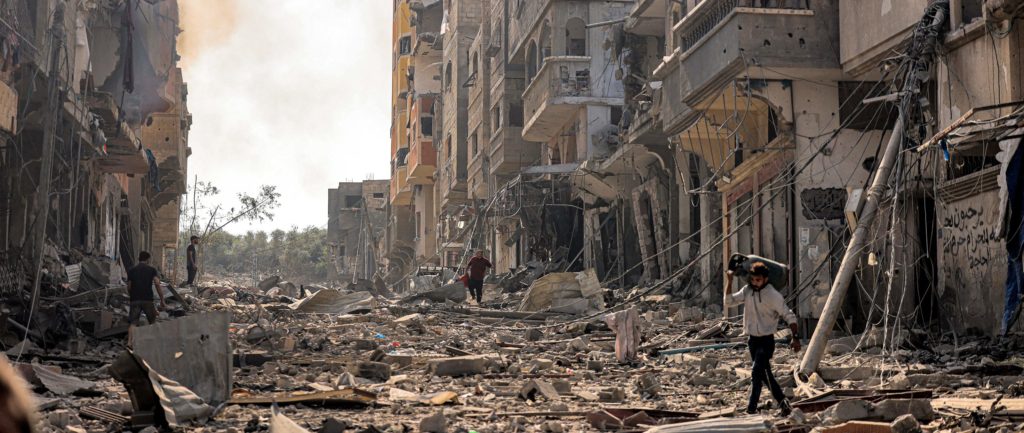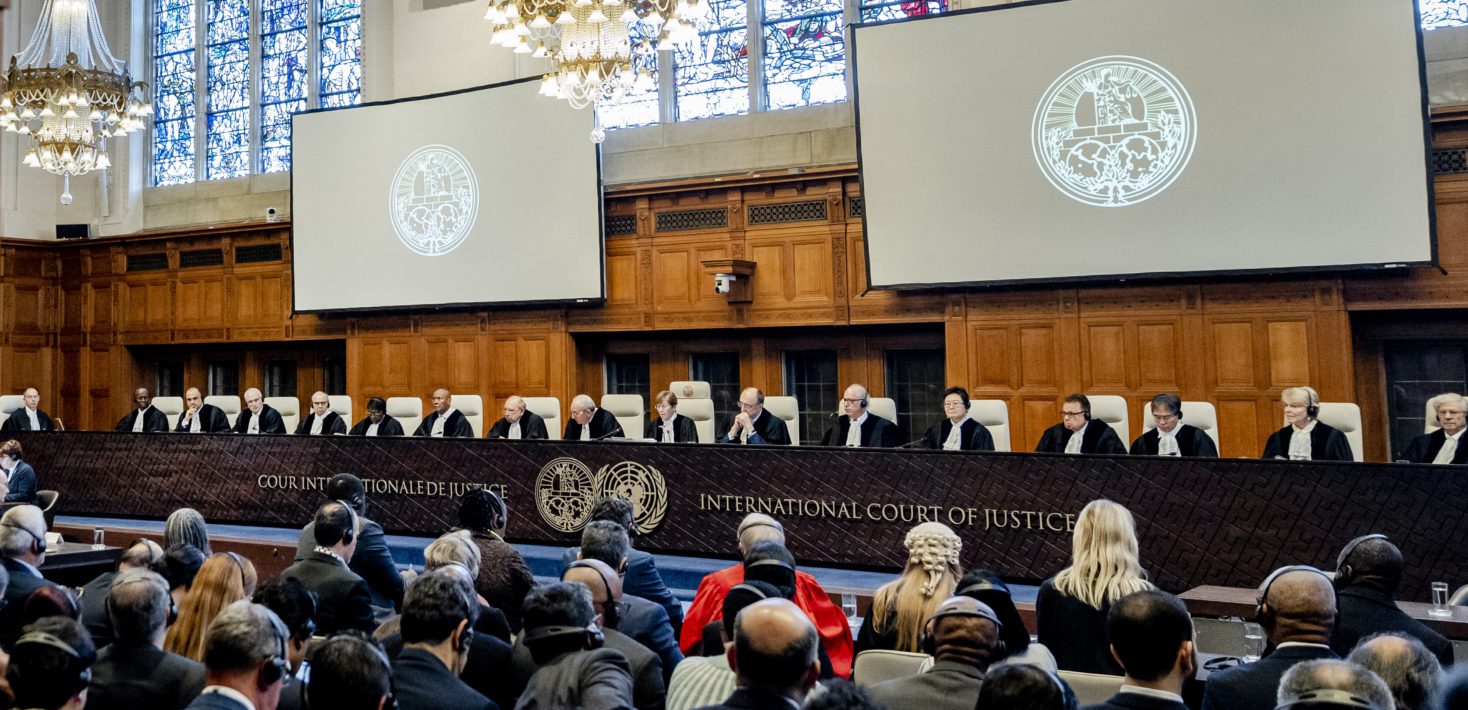Today’s decision by the International Court of Justice (ICJ) to order provisional measures in response to South Africa’s genocide case against Israel is an important step that could help protect the Palestinian people in the occupied Gaza Strip from further suffering and irreparable harm, said Amnesty International today.
An immediate ceasefire by all parties remains essential and – although not ordered by the Court – is the most effective condition to implement the provisional measures and end unprecedented civilian suffering.
Agnès Callamard, Secretary General of Amnesty International
The ruling issued by the ICJ ordered six provisional measures including for Israel to refrain from acts under the Genocide convention, prevent and punish the direct and public incitement to genocide, and take immediate and effective measures to ensure the provision of humanitarian assistance to civilians in Gaza. Crucially, the Court also ordered Israel to preserve evidence of genocide and to submit a report to the Court, within one month, of all measures taken in line with its order.
“Today’s decision is an authoritative reminder of the crucial role of international law in preventing genocide and protecting all victims of atrocity crimes. It sends a clear message that the world will not stand by in silence as Israel pursues a ruthless military campaign to decimate the population of the Gaza Strip and unleash death, horror and suffering against Palestinians on an unprecedented scale,” said Agnès Callamard, Secretary General of Amnesty International.
“However, the ICJ decision alone cannot put an end to the atrocities and devastation Gazans are witnessing. Alarming signs of genocide in Gaza, and Israel’s flagrant disregard for international law highlight the urgent need for effective, unified pressure on Israel to stop its onslaught against Palestinians. An immediate ceasefire by all parties remains essential and – although not ordered by the Court – is the most effective condition to implement the provisional measures and end unprecedented civilian suffering.

“The stakes could not be higher – the ICJ’s provisional measures indicate that in the Court’s view the survival of Palestinians in Gaza is at risk. The Israeli government must comply with the ICJ’s ruling immediately. All states – including those who were critical of or opposed South Africa’s submission of the genocide case – have a clear duty to ensure these measures are implemented. World leaders from the USA, UK, Germany and other EU states must signal their respect for the Court’s legally binding decision and do everything in their power to uphold their obligation to prevent genocide. Failure to do so would be a grave blow to the credibility and trust in the international legal order.”
States must also take urgent steps to prevent ongoing international crimes, including by imposing a comprehensive arms embargo against Israel and Palestinian armed groups.
The USA, UK, Germany and other EU states must signal their respect for the Court’s legally binding decision and do everything in their power to uphold their obligation to prevent genocide.
Agnès Callamard, Secretary General of Amnesty International
Amnesty International has warned of the risk of genocide in Gaza due to the shockingly high death toll among Palestinians, the widespread destruction caused by Israel’s relentless bombardment and the deliberate denial of humanitarian aid as part of the ongoing illegal blockade which are all inflicting horrifying levels of suffering on Gaza’s civilian population. Other warning signs include the increase in racist and dehumanizing rhetoric by some Israeli government officials, including Israeli Prime Minister Benjamin Netanyahu, and Israel’s history of oppressing and discriminating against Palestinians under its system of apartheid. In the face of a serious risk of genocide, all states are under an obligation under international law to act to prevent the commission of genocide.
More than 26,000 Palestinians, mostly civilians, have been killed in Israel’s unrelenting bombardment of Gaza with some 10,000 believed to be still missing under the rubble. At least 1.8 million Palestinians have been internally displaced and are deprived of access to adequate food, water, shelter, sanitation, and medical assistance.
Amnesty International calls on Israel, Hamas and other Palestinian armed groups to immediately suspend all military operations in Gaza. Israel must lift its illegal and inhuman siege and allow the unhindered and unconditional flow of desperately needed humanitarian aid to Palestinians, who are suffering from a deliberately engineered famine. We urge Hamas and other Palestinian armed groups to release all remaining civilian hostages.
Background
On 29 December 2023, South Africa brought a case against Israel at the ICJ under the Convention on the Prevention and Punishment of the Crime of Genocide over allegations of genocide against the Palestinian people in the wake of the attacks on 7 October 2023 by Hamas and other armed groups, in which nearly 1,200 people, mostly civilians, in Israel were killed and some 240 were taken hostage. Hearings on South Africa’s request for provisional measures took place in The Hague on 11 and 12 January 2024.
The 84-page filing by South Africa accuses Israel of acts and omissions “genocidal in character, as they are committed with the requisite specific intent … to destroy Palestinians in Gaza as a part of the broader Palestinian national, racial and ethnical group.”
The International Court of Justice is the principal judicial organ of the United Nations (UN). It does not pursue individual criminal responsibility, rather the Court’s role is to settle, in accordance with international law, legal disputes submitted to it by States, including those relating to the interpretation, application or fulfilment of the Genocide Convention and the responsibility of a State for genocide.
Article 94 of the UN Charter provides that judgments of the ICJ are binding on the parties to the dispute and that, if they are not implemented, then recourse is to be had to the Security Council, which may make recommendations or decide upon measures to be taken to give effect to the judgment.


